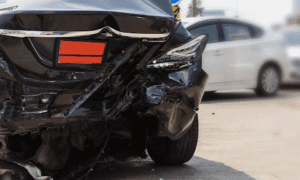In the Sunshine State of Florida, where scenic drives often turn into daily commutes, the unpredictability of the road is one constant we must prepare for. Accidents, big or small, can happen to any driver, even to the most careful ones. Hence, being equipped with the right knowledge and preparation for post-accident scenarios becomes not just helpful, but essential. This guide serves as your trusted companion, offering you a comprehensive overview of what to expect and how to navigate the complexities of car accidents within Florida. From immediate actions to understanding legal nuances, our aim is to make the post-accident process less daunting and more structured for every Florida resident.
Florida’s Car Accident Laws and Regulations
Mandatory Exchange of Insurance Details
After any accident, Florida law mandates that all involved parties exchange insurance information. This is a foundational step to ensure all affected individuals have the necessary details to file claims or address potential liabilities.
Requirement of Filing a Police Report:
In Florida, it’s not just a good practice but often a requirement to file a police report, especially when there are injuries or significant damages. A police report not only provides an official record of the incident but can also be crucial when settling disputes or claims in the future.
Importance of Medical Attention After Accidents:
Your well-being is paramount. Regardless of how minor an accident may seem, seeking medical attention post-collision is crucial. Some injuries, especially internal ones or concussions, might not manifest immediately but can have long-term implications. Ensuring you get a medical evaluation can protect your health and provide documentation should you need to address medical bills or potential legal actions.
Introduction to Legal Support in Florida for Accident-related Cases:
Accidents can quickly become complicated, particularly when it involves injuries, disputes, or unclear liabilities. In such scenarios, understanding your rights and seeking legal counsel becomes pivotal. Fortunately when it comes to searching for a car accident attorney, Florida boasts a plethora of seasoned attorneys specializing in car accident cases, ready to advocate for your rights and guide you through the legal labyrinth.
With these foundational laws and regulations in mind, you’re better prepared to handle the aftermath of an accident. The subsequent sections of this guide will delve deeper into each step, ensuring that you’re not just aware but also empowered.
Immediate Actions at the Accident Scene
Ensuring Personal Safety
The moments immediately following an accident can be disorienting, but your safety is the utmost priority. Immediately turn on your hazard lights to alert other drivers of the incident.
If it’s safe and the vehicle is operable, move your car to the side of the road, away from traffic. This not only ensures your safety but also minimizes the risk for additional collisions.
Contacting Emergency Services
Regardless of the accident’s severity, it’s crucial to contact emergency services. They can address immediate medical needs, secure the scene, and provide necessary guidance.
If there are apparent injuries or dangers (like a fuel leak), call 911 immediately.
Gathering Critical Information
Engage with the other driver(s) involved to exchange essential details, including names, contact details, insurance information, and vehicle registration.
Identify any witnesses at the scene and obtain their contact information. Witnesses can provide objective accounts, which may prove invaluable should disputes arise.
Use your smartphone or camera to capture photographic evidence. This should include vehicle damages, skid marks, road conditions, traffic signs, and any injuries sustained. Such visual documentation provides a clearer understanding of the accident scene and can significantly aid in insurance claims or potential legal proceedings.
Securing a Copy of the Police Report
When law enforcement arrives, cooperate fully and provide an accurate account of events. Remember, it’s crucial to stick to the facts and avoid speculating.
Before leaving the scene, ask the attending officer how you can obtain a copy of the police report. This document becomes a cornerstone for future interactions with insurance providers and potential legal actions.
Reaching Out to Your Insurance Provider
Timely Communication
It’s advisable to contact your insurance provider as soon as possible after the accident, ideally within 24 hours. Even if you believe you’re not at fault, informing your insurer ensures you’re abiding by your policy’s terms and conditions.
Interacting with Insurance Adjusters:
Following your initial report, an insurance adjuster will likely reach out to assess the damage to your vehicle and provide an estimate for repairs.
It’s essential to understand that adjusters operate with the insurance company’s best interest in mind. Be honest in your account, but also be cautious about making any statements that might inadvertently admit liability or downplay your claim’s value.
Understanding the Time Constraints
Florida, like all states, has specific time frames within which you must file an insurance claim following an accident. Familiarize yourself with these time limits, known as the “statute of limitations,” to ensure you don’t miss critical deadlines. This not only pertains to insurance but also to potential legal claims if you choose to pursue one.
Being prepared and knowledgeable about these immediate actions post-accident will not only help you navigate the situation with clarity but can also significantly impact the outcomes of insurance claims and potential legal proceedings.
Prioritizing Medical Attention
Recognizing Delayed Injury Symptoms:
Accidents can trigger adrenaline and shock, which may mask pain or injuries. As a result, not all injuries are immediately apparent post-collision. Conditions such as whiplash, concussions, or internal injuries might manifest hours or even days after the accident. Always prioritize getting a medical examination, even if you initially feel fine.
Options for Uninsured or Underinsured Individuals
Accidents can be daunting, especially if you lack insurance or have limited coverage. In Florida, there are various community health clinics and resources available for those without adequate insurance. Don’t forego medical attention due to financial concerns; prioritize your health and explore available resources to aid with medical expenses.
Importance of Medical Documentation
Always obtain and safeguard all medical records related to the accident. These records include doctors’ notes, prescriptions, medical bills, and diagnostic test results. They are crucial not only for tracking your recovery but also for validating any personal injury claims or insurance settlements. Such documentation offers concrete evidence of the severity and financial implications of your injuries.
Documenting Evidence and Maintaining Records
Best Practices for Photo Documentation
Photos can serve as compelling evidence in post-accident proceedings. Ensure you capture wide-angle shots that provide an overall perspective of the accident scene and close-ups of specific damages. Photograph all involved vehicles, license plates, traffic signals, road conditions, and visible injuries. Ensure pictures are clear, well-lit, and taken from various angles to provide a comprehensive visual account.
Maintaining a Record of Accident-Related Expenses
Post-accident expenses can mount quickly, from medical bills to car repairs and even lost wages. It’s essential to keep an organized record of all these expenditures. Store all receipts, bills, and relevant documentation in a dedicated folder or digital archive.
Leveraging Documentation in Legal Proceedings
Should you decide to pursue legal action or if there’s a dispute with your insurance claim, the evidence and records you’ve compiled become pivotal. Detailed documentation helps establish the facts, validate your claims, and can significantly influence the outcome in your favor. Engaging with a legal professional can further guide you on maximizing the impact of your documentation in legal contexts.
In the aftermath of an accident, a proactive approach towards medical attention and meticulous record-keeping can significantly streamline recovery and any associated legal or insurance processes.
Filing a Claim in Florida
From Medical Care to Insurance Contact
- Immediate Medical Attention: Always seek medical care post-accident, regardless of perceived injury severity. Inform the medical professional about the accident so they can make appropriate evaluations and document any potential injuries.
- Informing your Insurance Provider: As soon as you’re in a safe and stable situation, reach out to your insurance provider to inform them of the accident. This initial contact typically involves providing a general overview of the incident.
- Submitting an Official Claim: Depending on your insurer, you might be required to fill out an official claim form. This process often requires detailed information, including the accident’s circumstances, involved parties, and any injuries or damages sustained.
The Importance of Comprehensive Documentation
Ensure that you’ve thoroughly documented every aspect of the accident—photographs, witness statements, medical records, and police reports. This documentation aids in providing a clear and undisputed account of the accident, making the claim process smoother and ensuring you get the compensation you deserve.



































